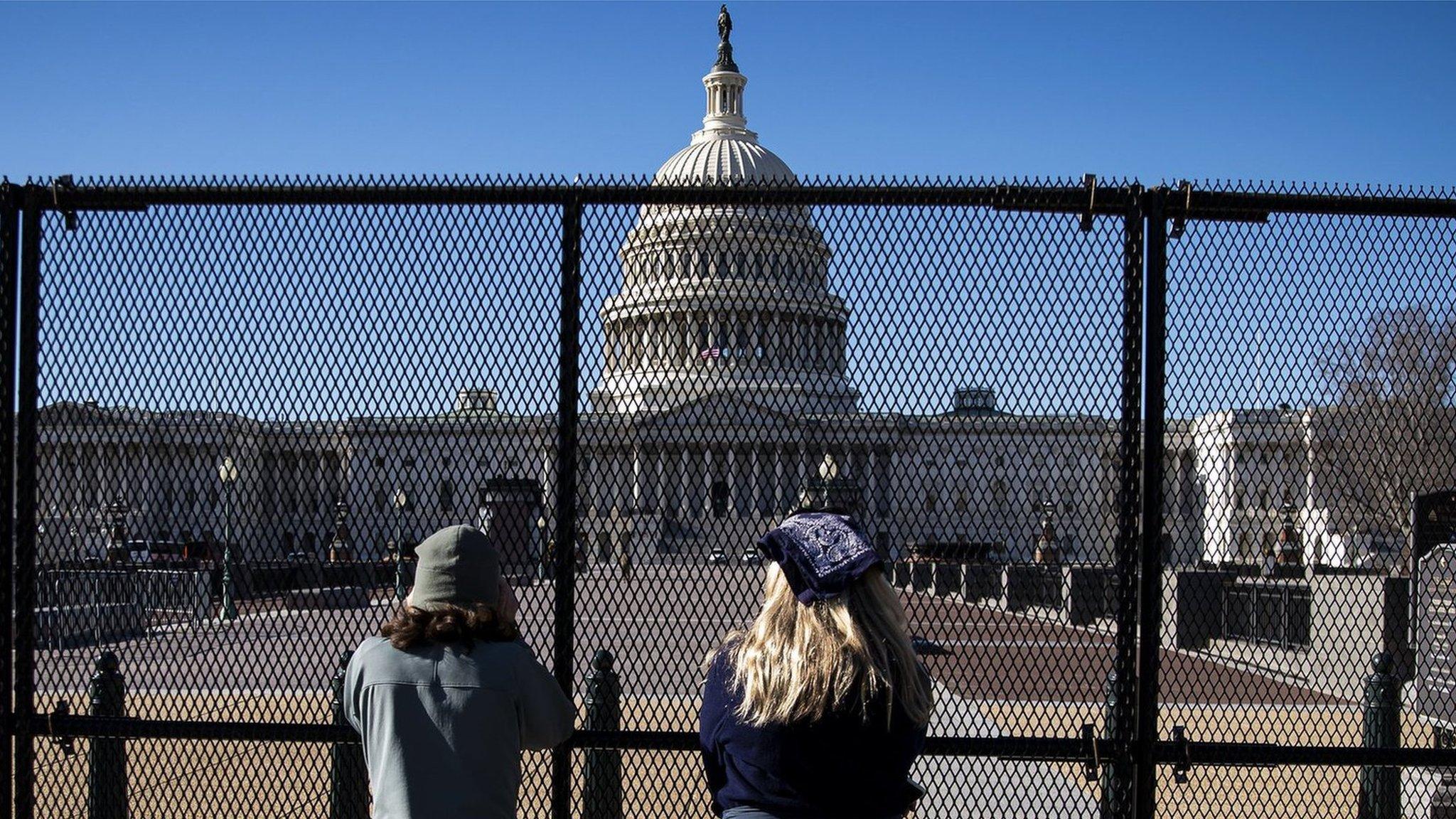Kamala Harris and a 1986 snapshot of that Howard generation
- Published
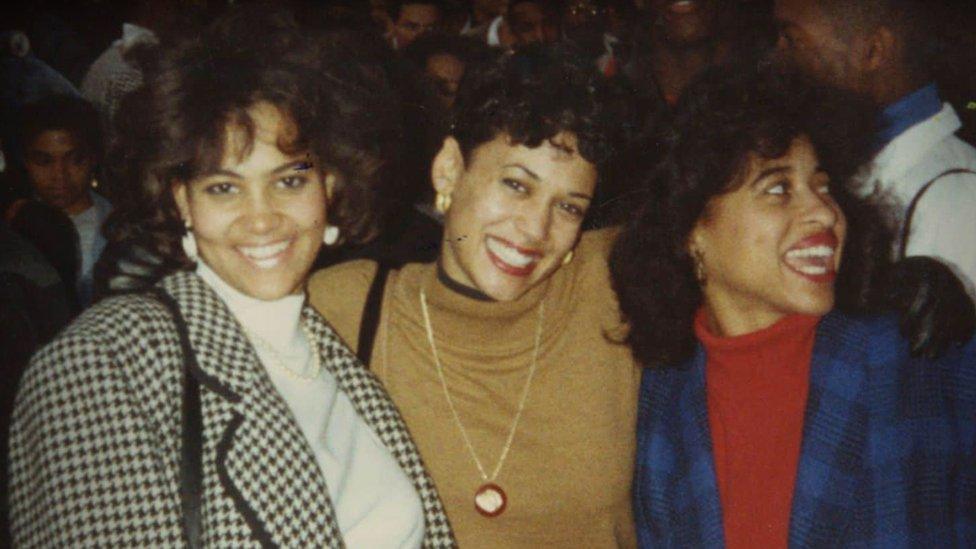
There is a photograph of Kamala Harris, taken in 1986, while she was a student at Howard University.
She and two other friends, all shoulder pads and plaid, are smiling and laughing, a crowd behind them. It's a picture brimming with energy and hope.
It's been used a lot in telling the extraordinary story of her rise to become the first black and Asian American woman to be vice-president and the first person who attended one of America's HBCUs (Historically Black Colleges and Universities) to get to such a position.
But this is the story of the other women in the photograph, her two best friends - Valarie Pippen and Karen Gibbs - as well as of others who might have been milling about in the background there.
This was the 1980s, when the children of America's civil rights generation came of age. Being at Howard University, an HBCU at a time when solidarity with the global anti-apartheid movement was reaching fever pitch and at the height of Reaganism, was a formative experience for many of them.
Now they are about to witness one of their own become vice-president. What have their journeys been like and what does this moment feel like?

Historically Black Colleges, like Howard University, were founded in order to educate African Americans who were otherwise prohibited from attending college, after slavery.
Who is Kamala Harris, vice-president?
Although that has now changed, a core part of the Howard message remains its focus on cultivating black leaders - it is not just about academic achievement, but social activism too.
Kamala Harris has made clear the influence Howard University had on her career and life goals. Last week, on the anniversary of her sorority's founding date, she posted on Instagram, external, paying homage to her Alpha Kappa Alpha Sorority, and referring to her days at Howard, attending anti-apartheid marches and being part of the debate team: "Howard taught me that while you will often find that you're the only one in the room who looks like you, or who has had the experiences you've had, you must remember: you are never alone."
Like Ms Harris, I also went to Howard University and became a member of that same sorority decades later.
I became intrigued by the stories of the other women and graduates who ventured out into the same world during the same time as Kamala.
In that photograph, Valarie Pippen is on the right and smiling with confidence at the camera.
Her parents attended historically black colleges after moving north with the great migration, which was the movement over decades of millions of African Americans to the North from the South, where economic uncertainty and segregation prevailed. They settled in the Chicago region and forged successful careers.
She was led to Howard, specifically, after her older brother attended and brought home a yearbook that intrigued her.
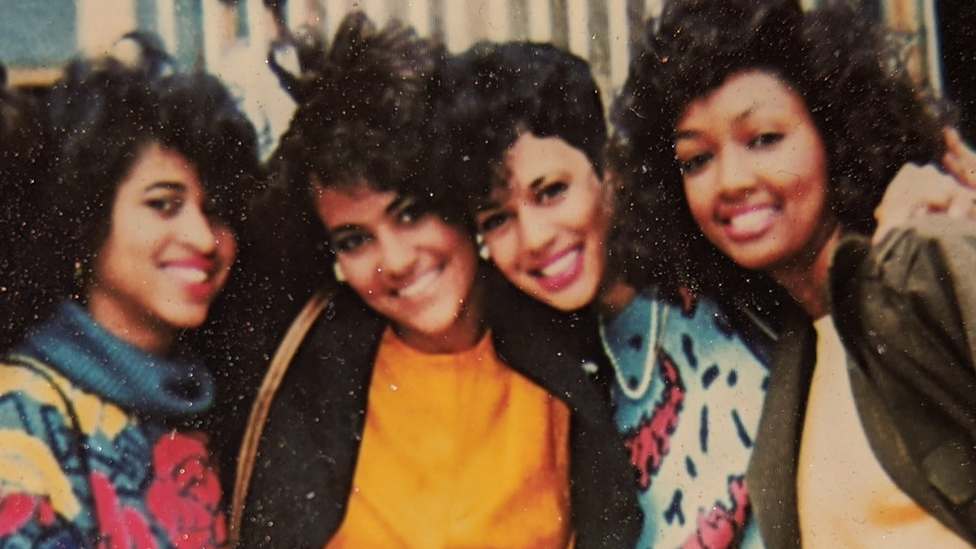
Howard had a festive celebratory atmosphere that the friends made the most of while they were there
"The culture was festive and lively yet focused on academic and cultural advancement of oppressed people," says Ms Pippen. "We knew that our generation would make a difference with our success."
Ms Pippen says that at Howard University "we all had more of a striving to do well, a striving to live with integrity and to make your mark on the world".
Coming from a high-achieving and proud black family with high expectations of their children, she was brought up knowing that her college experience was going to be important.
She is now a healthcare consultant, and after graduating from Howard she attended medical school at Yale.
She recalls the commitment to academic excellence, the need to prove your worth out there in the world and how that also translated into many nights studying with her good friend Kamala.
"There was one year at Howard, we both stayed for summer school. We worked during the day, did night classes and we studied together afterwards. We did that for the whole summer and we had fun.
"She was born for the job. Her dedication - like mine - was to academics, being an all around good person and to integrity."
In the 1990s, 52% of black pharmacy recipients, 30% of dentistry degree recipients, and 27% of theology degree recipients were all educated at HBCUs.
Today, the two oldest HBCU medical schools - Meharry Medical College and Howard University - are responsible for more than 80% of black doctors and dentists practising in the US.
HBCUs have educated three-quarters of all black people holding a doctorate; three-quarters of all black officers in the armed forces; and four-fifths of all black federal judges, according to the US Department of Education.
The culture they fostered was hugely important for many ambitious and successful middle- and upper-class class black families going out into a world to become leaders in their field, within one generation of getting the right to vote.
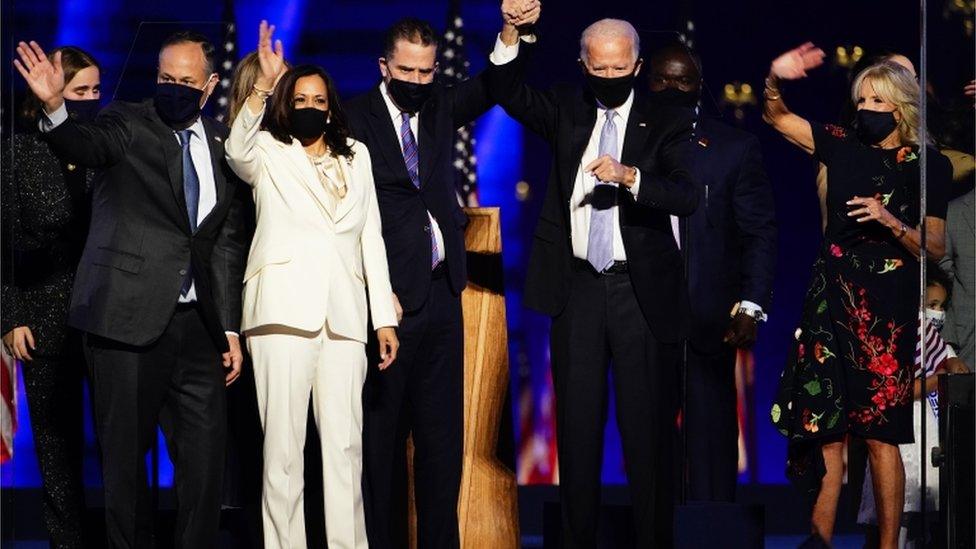
Kamala Harris and Joe Biden celebrate their election victory
Karen Gibbs, pictured on the left in that photo, remains best friends with the vice-president elect and Valarie Pippen.
She is now an attorney and speaks of her time at Howard in the same way Kamala Harris has in the past.
There was "a lot of black pride and a lot of black love" in the Howard community, says Ms Gibbs.
"We had black professors who loved us. That was the beauty of going to Howard. They nurtured us, they groomed us. They were realistic to tell us what we would confront when we left Howard - but they equipped us to realise and achieve our dreams."
That environment was especially important as an escape from the realities of society.
"I was raised in a rural area in Delaware, and the people there were really racist. I had been called bad names by a lot of people, despite having a black family and smaller community filled with educators and proud of their roots," says Ms Gibbs.
That is one of the reasons that she wanted to attend Howard University, to become a civil rights lawyer. She made the move so that she could be surrounded by "love" and "support".
"It was never a matter if I would go to an HBCU," it was just a matter of which she would go to.
Ms Gibbs and Ms Pippen's experience at Howard University strikes a chord with others who were also there in the 1980s.
They speak of the open fostering of social awareness and political activism in movements happening off campus.
Being in the nation's capital, Howard in particular had a front-row seat to some memorable episodes in politics.
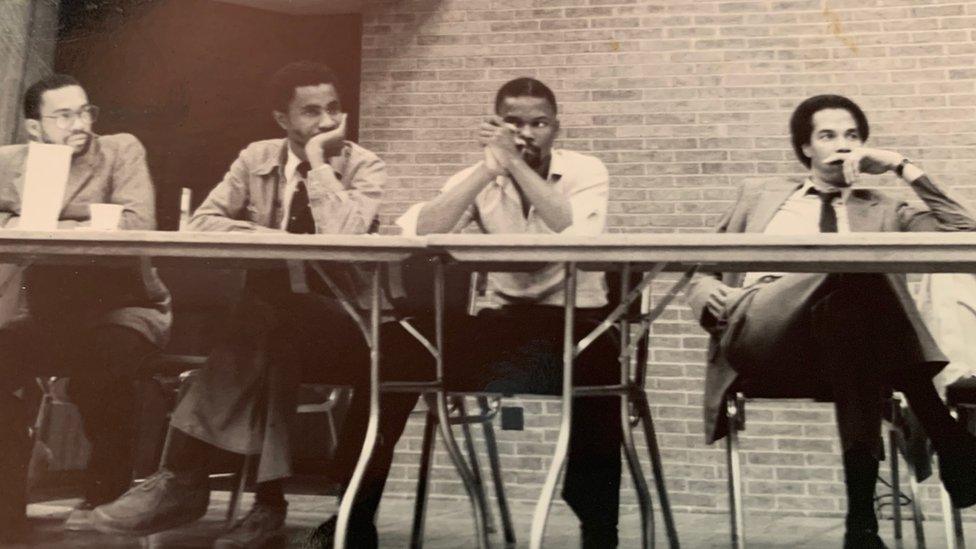
The debate team in 1981 at Howard University. Kamala Harris was one of the few women to join the club.
Dexter Cole, a Howard alumnus and now top executive at TV One, told the BBC that "our parents actively participated in the civil rights movements and were at the forefront, and we came to Howard with a sense of commitment to not only improve the lives of ourselves, but others as well".
Across the nation, HBCUs were training a generation who would have a large impact on the world, and the progression of the broader African-American community.
"We understood that we were agents of change."
Mr Cole explained that "social unrest was very prevalent, but as a student body we knew that we had a seat at the table because of those we saw who went before us".
"I remember marching on Capitol Hill on the National Mall. There was a group of students going to protest to make Martin Luther King Jr's birthday a national holiday, and now I look there is a memorial just where I marched.
"We knew what our rights were and we were determined to invoke our right. That's why there were so many of us active in the anti-apartheid movement - we saw it play out in the US," says Ms Gibbs.
"It was a time when a lot of people from the era transcended into important places in different parts of society," says Lita Rosario-Richardson.
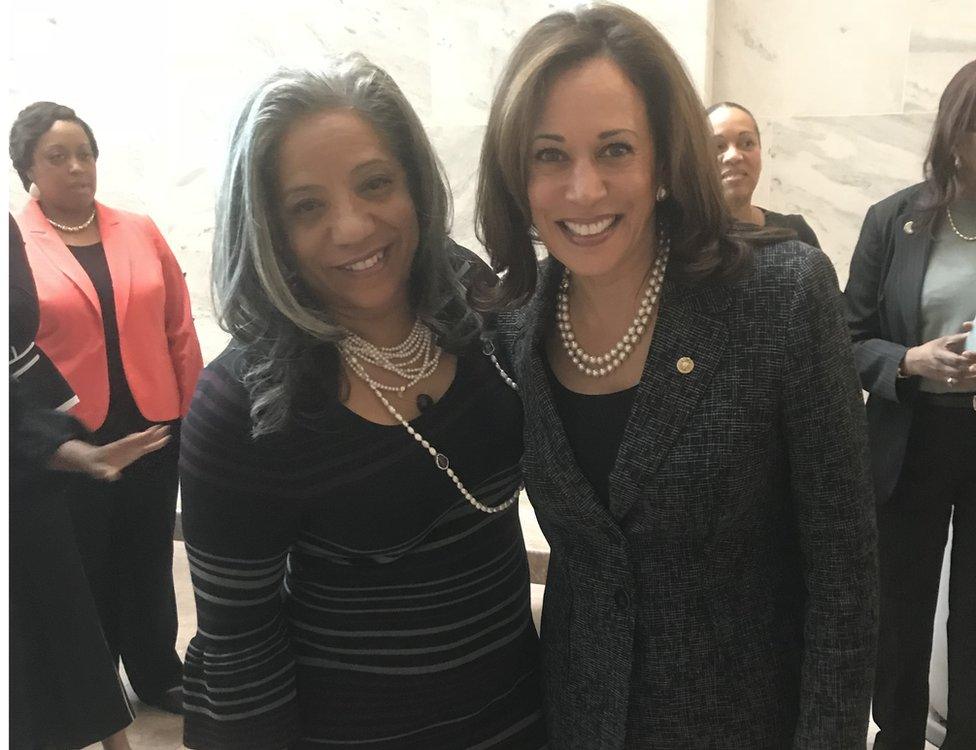
Lita Rosario-Richardson recruited Kamala Harris into debate club
Ms Rosario-Richardson is currently an entertainment lawyer. On campus, she recruited Ms Harris on to the debate team.
"The election of Kamala Harris has really made crystal clear that Howard prepares you for anything," she adds.
Although it is no surprise to those who knew Kamala Harris that she is now the vice-president of the United States, it feels like a vindication for their own personal journeys and the philosophy they took forward with them into the wider world.
"It was instilled that with your education comes a responsibility to improve the world - specifically our own people. And, we see that that has benefited everyone in America.
"Kamala is a child of desegregation, like myself. Her nomination seemed historically fit, and she's the right person for it," Ms Rosario-Richardson adds.
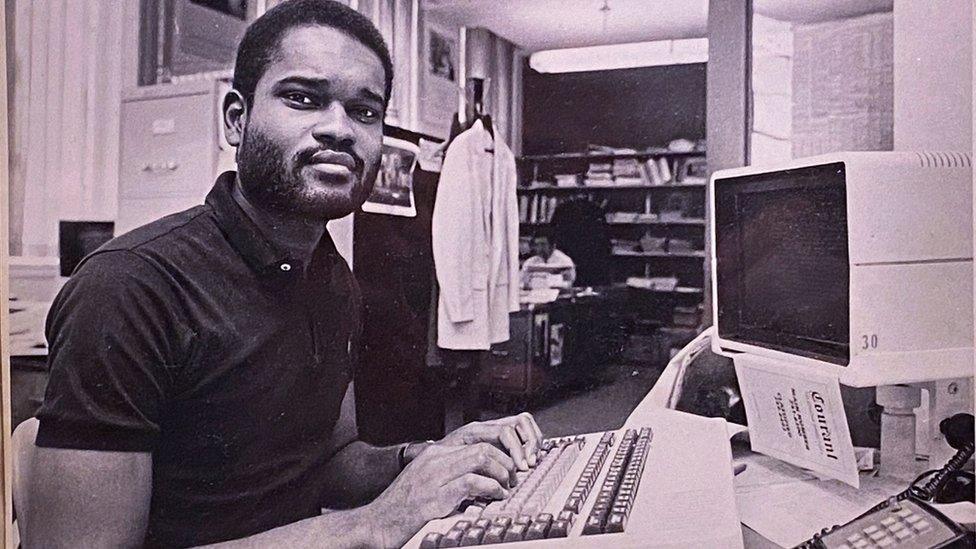
Dexter Cole is now a top executive at TV One
"Alumni like Thurgood Marshall - the first black Supreme Court Justice - who attended Howard laid the framework."
Even during their time as students, these alumni felt that they were connected to greatness and expected to make big strides in the world.
It was not a feeling confined to Kamala Harris. The stories of these women show many have become movers and shakers in their own fields.
"All this has come full circle," says Andrea Holmes, a graduate who is now a marketing executive.
"The vice-presidency is where she belongs. She is the role model of the world and to all women and little girls."
The original photograph of Kamala, Valarie and Karen was taken in 1986 at Howard University's famous Homecoming.
At most schools in the US, homecoming is an annual tradition marked by an American football game and partying. At Howard University, homecoming is marked by a football game as well as a week of events where all generations come back to meet and celebrate. Notable graduates as well as celebrities and artists come to perform, join discussions, and be part of the week.
As a graduate, I know Homecoming remains a highly anticipated annual event, an experience like no other. That picture captures the energy, friendship and ambition of a group of women, at Howard in an electric era, who felt capable of anything.
Valarie Pippen remembers the moment: "The weekend was truly exhilarating, and you can see from the looks and smiles on our faces we were having the time of our lives."
Related topics
- Published20 January 2021
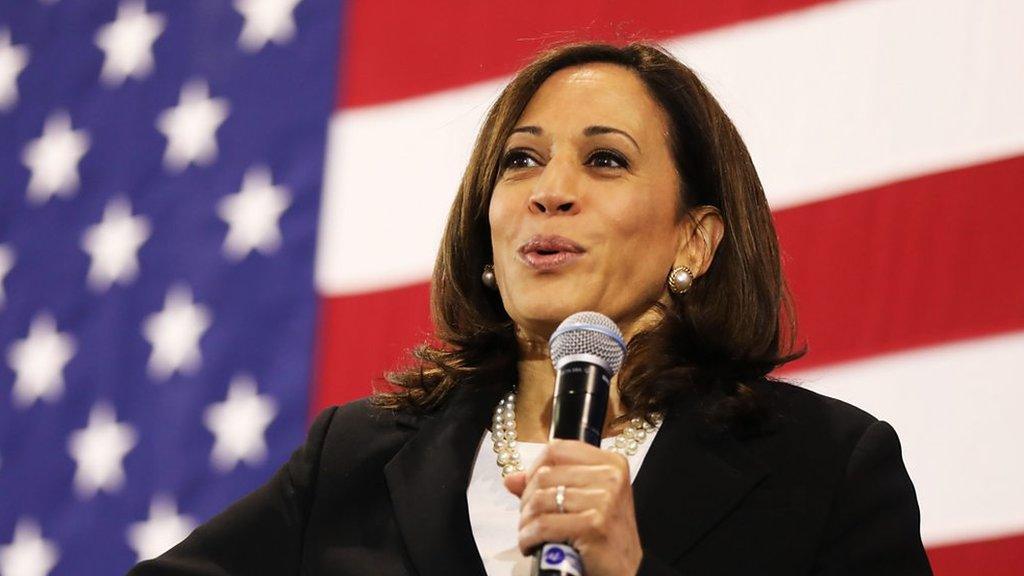
- Published8 November 2020
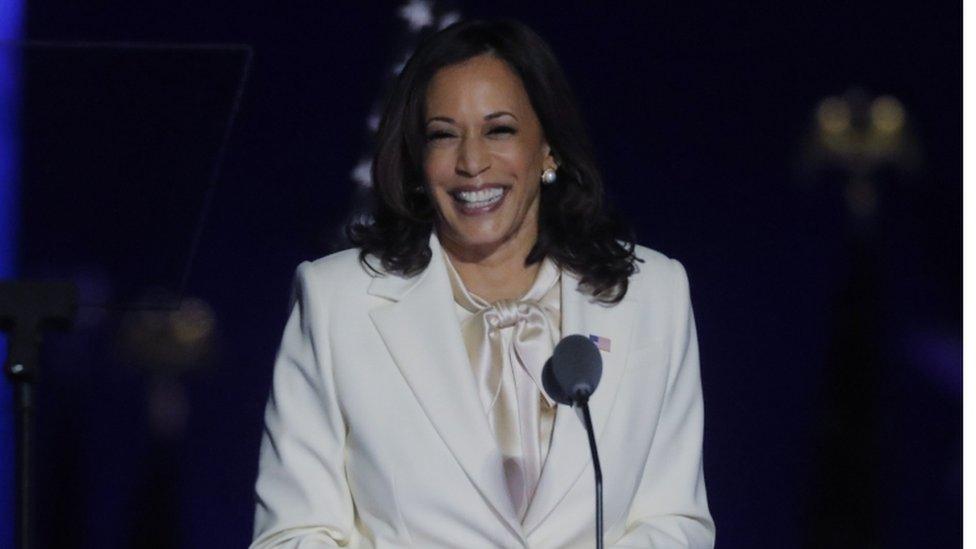
- Published15 January 2021
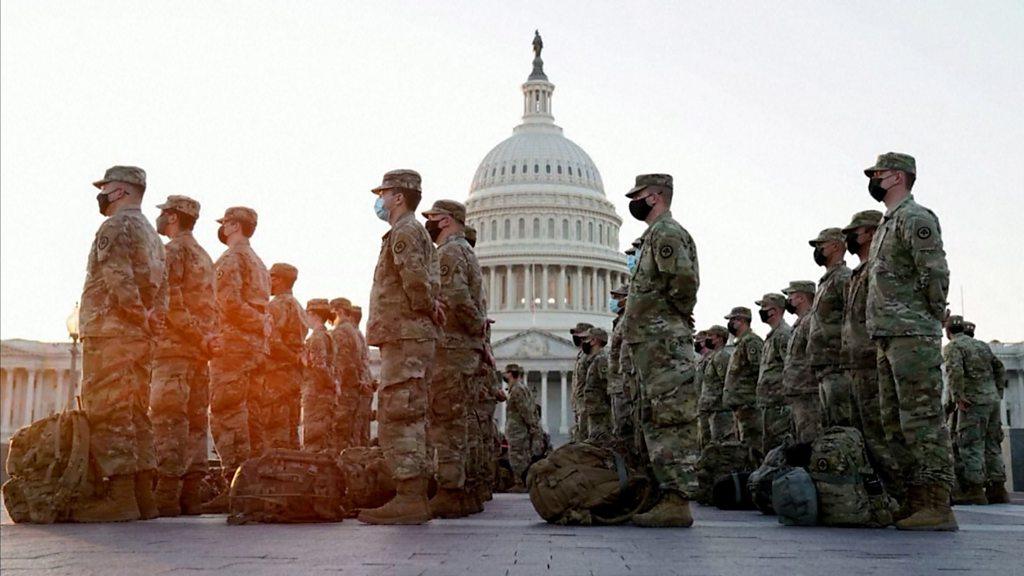
- Published16 April 2021
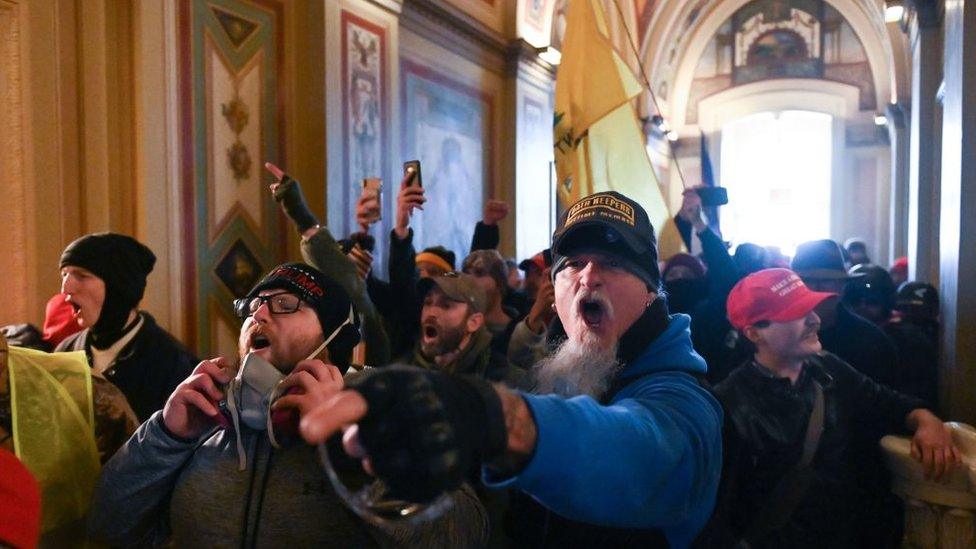
- Published14 January 2021
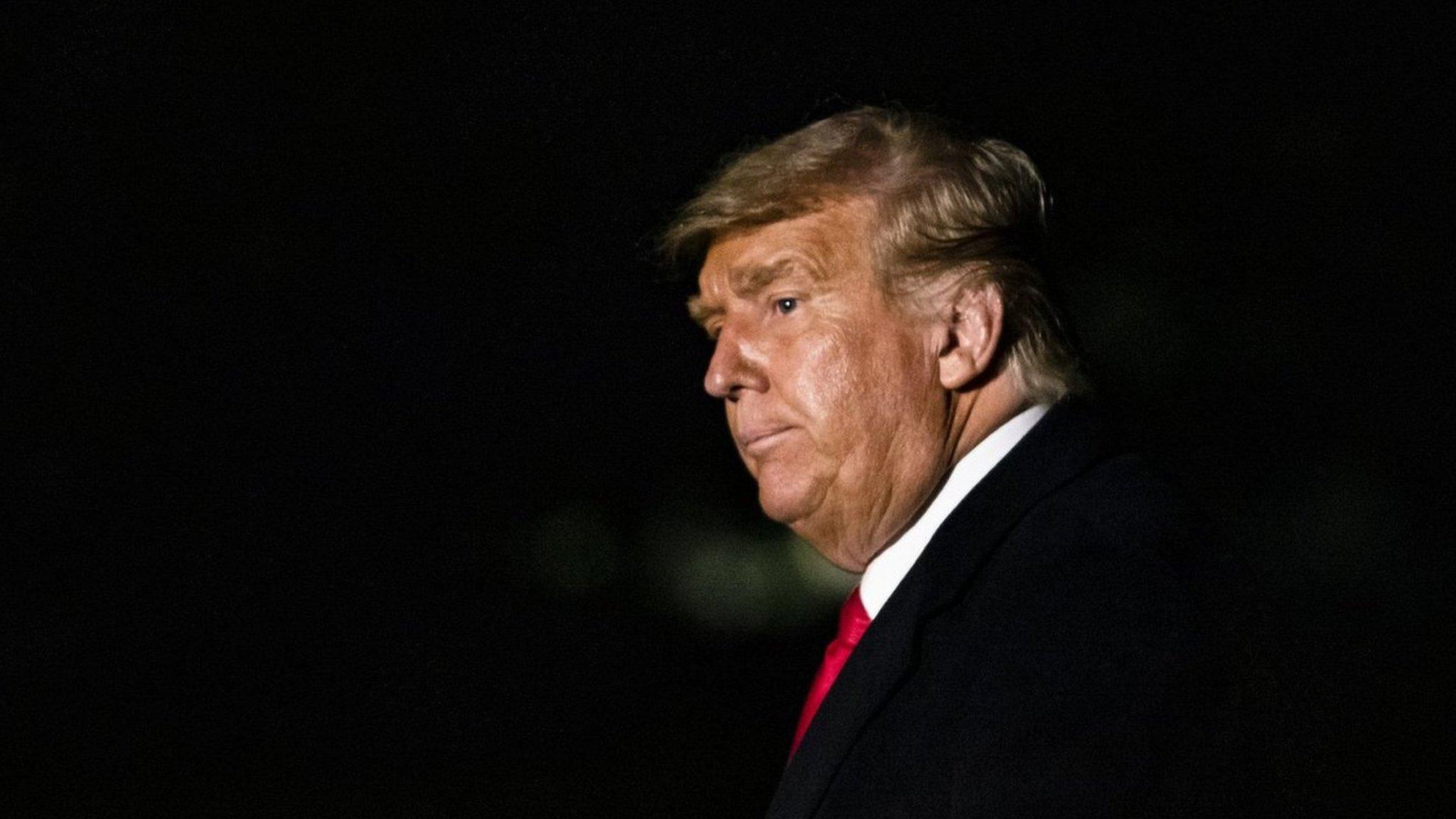
- Published14 February 2021
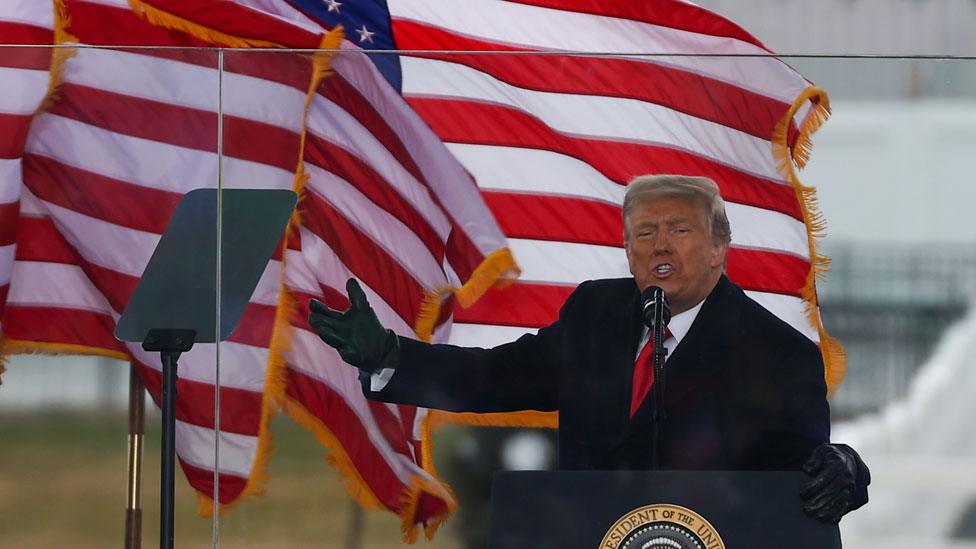
- Published12 January 2021
